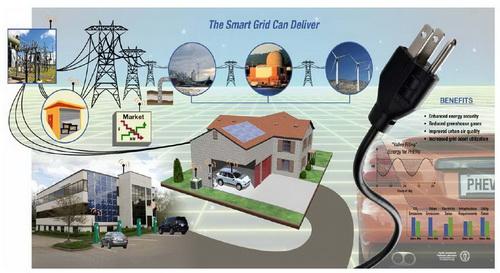School of Information research fellow Aaron Burstein and master's student Longhao Wang have filed a public comment urging the US White House Office of Science and Technology Policy (OSTP) to make an analysis of privacy risks a central part national Smart Grid policy.
The Smart Grid — a term that refers to the integration of modern information technology to carry price data and other information to control energy demand facilitate the introduction of alternative energy sources — got a recent boost from the 2009 stimulus bill and other federal legislation, which made development grants available and charged NIST, the Department of Energy, and other federal agencies with developing technical requirements.
The comment was a response to OSTP's request for information on issues concerning the "consumer interface" with the Smart Grid. It points out that, while cybersecurity and interoperability have been at the center of federal efforts, they have not addressed privacy risks. Burstein and Wang's comment notes that Smart Grid technologies can be designed to advance privacy, cybersecurity, and innovation goals and suggests that this approach is preferable to retrofitting or replacing deployed equipment.
The comment was joined by the Center for Democracy & Technology.
Burstein and Wang are working with I School assistant professor Deirdre Mulligan this semester to further analyze Smart Grid privacy risks, with a focus on technologies being deployed in California.










